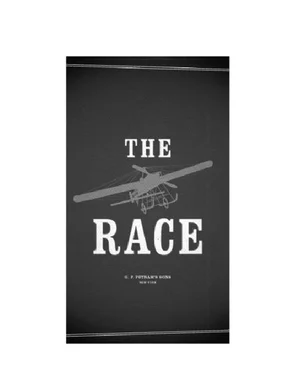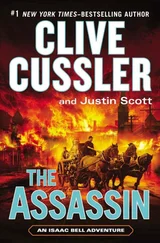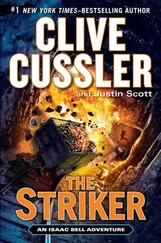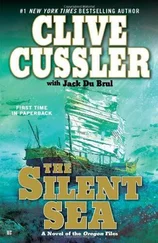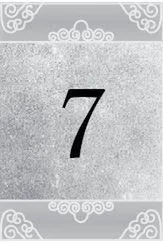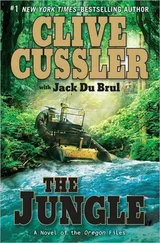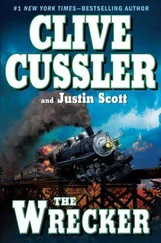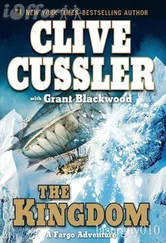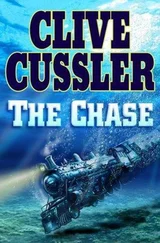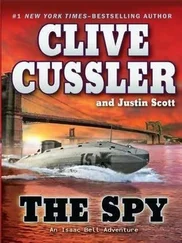Clive Cussler - The Race
Здесь есть возможность читать онлайн «Clive Cussler - The Race» весь текст электронной книги совершенно бесплатно (целиком полную версию без сокращений). В некоторых случаях можно слушать аудио, скачать через торрент в формате fb2 и присутствует краткое содержание. ISBN: , Жанр: Детектив, на английском языке. Описание произведения, (предисловие) а так же отзывы посетителей доступны на портале библиотеки ЛибКат.
- Название:The Race
- Автор:
- Жанр:
- Год:неизвестен
- ISBN:978-1-101-54773-1
- Рейтинг книги:3 / 5. Голосов: 1
-
Избранное:Добавить в избранное
- Отзывы:
-
Ваша оценка:
- 60
- 1
- 2
- 3
- 4
- 5
The Race: краткое содержание, описание и аннотация
Предлагаем к чтению аннотацию, описание, краткое содержание или предисловие (зависит от того, что написал сам автор книги «The Race»). Если вы не нашли необходимую информацию о книге — напишите в комментариях, мы постараемся отыскать её.
The Race — читать онлайн бесплатно полную книгу (весь текст) целиком
Ниже представлен текст книги, разбитый по страницам. Система сохранения места последней прочитанной страницы, позволяет с удобством читать онлайн бесплатно книгу «The Race», без необходимости каждый раз заново искать на чём Вы остановились. Поставьте закладку, и сможете в любой момент перейти на страницу, на которой закончили чтение.
Интервал:
Закладка:
The tall detective stalked from opulent room to opulent room.
Anger began to heat his breast. Scion of a Boston banking family, and bequeathed a personal fortune by his grandfather, Isaac Bell was accustomed to the accoutrements of great wealth and no stranger to privilege. But this so-called camp had been paid for with riches founded on the suffering of innocent men, women, and children. Harry Frost had committed so many crimes forging his empire that it would be difficult to single one out were it not for a Chicago depot bombing he had engineered to destroy a rival distributor. Frost’s dynamite had killed three newsboys waiting for their papers. The oldest had been twelve.
Bell’s boot heels echoed though an empty corridor and down a stairway.
At the foot of the stairs hulked a heavy oak door, studded with nailheads.
Bell jimmied the lock and discovered a vast wine cellar carved from the living stone. He strode among the racks, noting excellent vintages from the last twenty years, a large number of the fine ’69 and ’71 clarets and some astonishingly rare bottles of 1848 Lafite, laid down nearly twenty years before Baron Rothschild bought the Médoc estate. Frost had even purchased a long row of Château d’Yquem bottles of the 1811 Comet Vintage. Although, based on the low quality of the art hanging upstairs, Bell suspected a crooked wine merchant’s variant on fake Academy paintings.
Upon leaving the wine cellar, he stopped suddenly, arrested by the sight of a wedding photograph on a center table. Harry Frost, dressed up in top hat and morning coat, glowered truculently at the camera. Expensive tailoring could not hide his bulk, and the top hat made him appear even wider. Bell studied the photograph closely. Frost, he realized, was not the fat man a first glance might suggest. There was something lithe and long-legged about his stance, a man poised to spring. Violent as a longhorn, Joe Van Dorn had characterized him. Quick as one, too, Bell suspected. And as strong.
Josephine stood like a child beside him, her youthful face expressing bravery, Bell thought, and something more – a sense of adventure as if she were embarking into the unknown and hoping for the best.
Arrayed stiffly behind the couple was a family of what looked like farm folk dressed for church. Bell recognized the stone fireplace behind them. They had been married here at the camp in this vast, echoing room. A strong resemblance in all the faces, but Frost’s told Bell that no one but Josephine’s own family had attended.
He went outside. He circled the house and inspected the outbuildings. A carriage house had been converted to a firing range, with an arsenal of pistols and rifles locked in a glass case. Similar cases held collections of swords, cutlasses, flick-knives, and daggers.
The garage contained expensive automobiles – a Packard limousine, a Palmer-Singer Skimabout, a Lancia Torpedo – and several motorcycles. The stable of vehicles fit the picture forming in Bell’s mind of Frost as a restless recluse. He lived like a king but also like an outlaw. The camp was as much a hideout as it was an estate, and Frost, like all successful criminals, was prepared for a quick getaway. It seemed as if Harry Frost knew that, despite his wealth and power, it was only a matter of time before he would commit an atrocity that would make him a fugitive.
Bell looked into the blacksmith shop. The forge was cold. In the smithy’s scrap heap he saw horseshoes that had been twisted out of shape. Harry Frost’s Chicago calling card, Bell recalled, bent with Frost’s bare hands to demonstrate his almost inhuman strength, then thrown by his thugs through the bedroom windows of his rivals. It was an article of faith among the drunks in the West Side saloons that Frost had killed a Clydesdale with his fist.
Hanging above the twisted shoes, grimy with smoke, was a framed award that Frost had received for contributing money to a civic group. Bell turned on his heel and walked into the sun, whispering the newsboys’ names: Wally Laughlin, Bobby Kerouac, Joey Lansdowne. It had been an elaborate funeral, their fellows maintaining the newsboy tradition of hiring hearses and mourners and paying clerks to write obituaries and letters of condolence. Wally Laughlin, Bobby Kerouac, Joey Lansdowne, barely out of childhood, priests promising their mothers they’d find a better place in Heaven.
Bell entered the boathouse at the edge of the lake. Inside, he found flatboats and canoes and a sailboat with its mast shipped. From the boathouse he walked through tall grass to the aeroplane hangar. It contained enough parts to assemble several flying machines. But the machine he had seen through the open end was missing its engine and propellers.
He heard voices in the direction of the smokehouse.
Bell walked quietly toward them, keeping the squat windowless stone structure between him and whoever was talking on the other side. He stopped beside it. A voice was droning on and on. It sounded like a middle-aged or older man, talking some trapped listener’s ear off. Bell’s own ear was struck by the accent. The speaker spoke the flat a ’s heard in the Adirondack region. But this was no local Upstate New Yorker, not with the unmistakable d ’s for th sounds and snaky s ’s of Chicago.
The subject of his monologue tagged him as a denizen of the notorious Levee District, where crime and vice were daily fare.
4
“YOU WANT TO MAKE A PILE MONEY, you get yourself a bordello – What’s that? No, no, no. Not here! Who’s your customers here? Cows? You go to Chicago! You go over dere by the West Side. You purchase a house for six thousand. You bring a carpenter by to build a buncha walls for a couple hundred bucks. You get ten girls. Twenty visits a night. Dollar a visit – you don’t want no cheap fifty-cent house – and you let the girls keep half. You pay the house off in two months. From then on, you’re making three thousand a month. Profit! ”
“I gotta go do my chores,” said a younger, slower voice.
Bell removed his broad-brimmed hat to venture a quick glance around the corner. The middle-aged talker was sitting on a barrel with his back to him. He had a bottle of beer in his hand and was wearing a city man’s derby, shirtsleeves, and vest. The younger was a farm boy in a straw hat. He was clutching a bucket and a rake.
“And don’t forget your profits selling booze to the visitors. And the girls. The girls always blow their easy money. They want morphine, cocaine, wine, you take your cut. Salesman comes by to sell’em dresses, you take your cut.”
“I gotta go, Mr. Spillane.”
The farmhand shuffled out of sight in the direction of the creamery.
When Bell rounded the corner of the smokehouse, and the man on the barrel whirled to face him, he instantly recognized the grizzled fifty-year-old from the wanted posters.
“Sammy Spillane.”
Spillane stared long and hard, trying to place him. It had been ten years. He pointed at Bell, shaking his finger, nodding his head. “I know you.”
“What are you doing here, Sammy? Was Harry Frost running an old folks’ home for retired bruisers?”
“You’re a goddamned Van Dorn, that’s who you are.”
“How did you get out of Joliet?” Sammy’s pale skin told him he’d been locked up until recently.
“Time off for good behavior. Time to paste your nose into that pretty face.”
“You’re getting a little long in the tooth to mix it up, aren’t you, Sammy?”
“I am,” Sammy conceded. “But me old gal Sadie blessed me with two fine sons. Come out here, boys!” he called loudly. “Say hello to a genuine Van Dorn detective, who forgot to bring his pals with ’im.”
Читать дальшеИнтервал:
Закладка:
Похожие книги на «The Race»
Представляем Вашему вниманию похожие книги на «The Race» списком для выбора. Мы отобрали схожую по названию и смыслу литературу в надежде предоставить читателям больше вариантов отыскать новые, интересные, ещё непрочитанные произведения.
Обсуждение, отзывы о книге «The Race» и просто собственные мнения читателей. Оставьте ваши комментарии, напишите, что Вы думаете о произведении, его смысле или главных героях. Укажите что конкретно понравилось, а что нет, и почему Вы так считаете.
